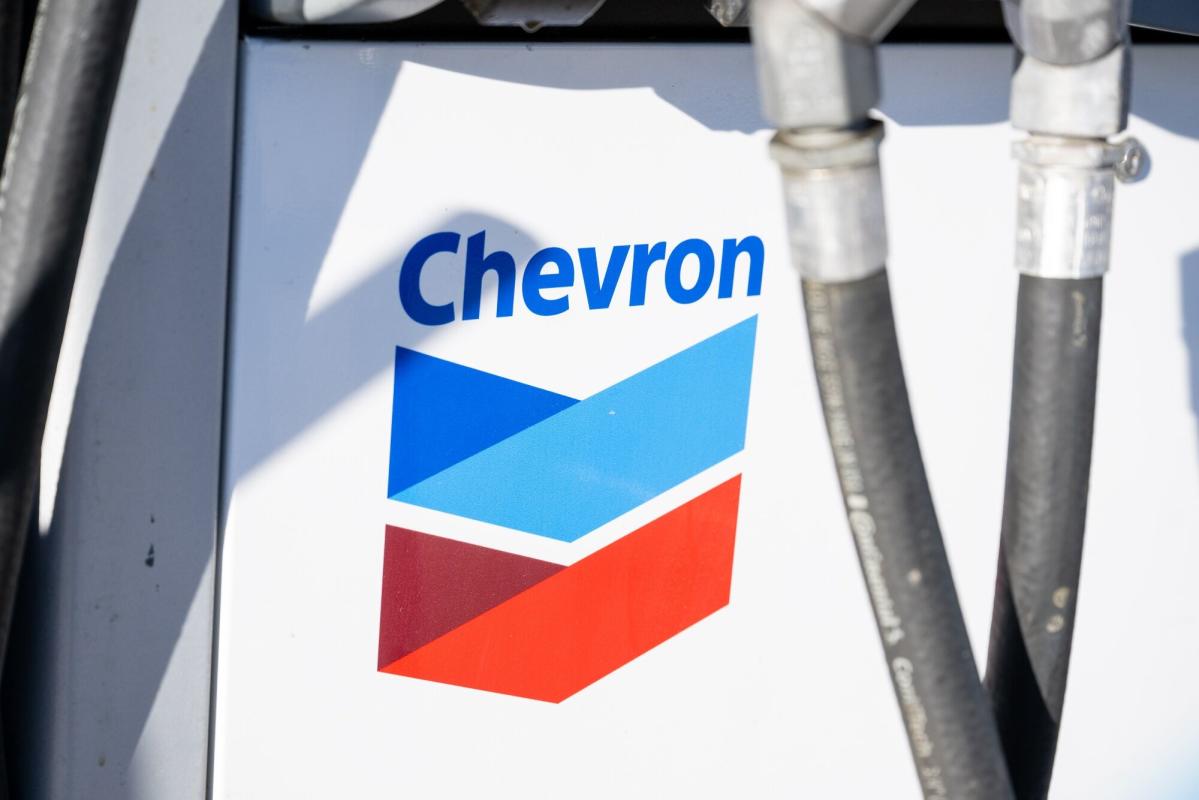
(Bloomberg) — Chevron Corp. is relocating headquarters to Houston from California after repeatedly warning that the Golden State’s regulatory regime was making it a tough place to do business.
Most Read from Bloomberg
The move announced Friday will end the company’s more than 140 years of being based in the largest US state and comes amid a shake-up in senior leadership ranks apparently aimed at improving results.
Chevron already had slashed new investments in California refining, citing “adversarial” government policies in a state that has some of the most stringent environmental rules in the US. In January, refining executive Andy Walz warned that the state was playing a “dangerous game” with climate rules that threatened to spike gasoline prices.
Chief Executive Officer Mike Wirth pushed back on suggestions that the relocation is being driven by politics, saying “it’s really to be closer to the core epicenter of our industry.”
“We’ve had some policy differences with California,” Wirth said during a Bloomberg Television interview. “But this isn’t a move about politics. It’s a move about what’s good for our company to compete and perform.”
Oracle, Tesla
Chevron joins a long list of California emigres that includes Oracle Corp., Hewlett Packard Enterprise Co. and Tesla Inc. While the migration among former Silicon Valley tech giants has been largely driven by tax and and cost-of-living considerations, Chevron has been at loggerheads with state leaders over increasingly tough fossil-fuel rules.
Wirth has been extolling the virtues of the Lone Star State’s business climate for at least half a decade.
“The policies in California have become pretty restrictive on a lot of business fronts, not just the environment,” he said during a 2019 speech in Houston.
California has long been an incongruent state for an oil company to call home. It pioneered the push to cut tailpipe emissions in the 1960s. And in 2022, Governor Gavin Newsom signed a sweeping climate measure setting a goal for California to become net zero by 2045, five years ahead of US as a whole.
Frequent droughts and wildfires mean the state is already suffering from catastrophic effects of climate change. California accounts for more than a third of the country’s EV sales. And almost all of America’s renewable diesel, made from vegetable oil and natural fats, is consumed in California.
Separately, Chevron missed second-quarter profit estimates, heaping pressure on Wirth to prevail in his $53 billion effort to acquire Hess Corp. Chevron shares fell as much as 3% in pre-market trading.
Also See: Exxon Surpasses Expectations as Pioneer Deal Fuels Record Output
Three senior executives are departing Chevron, including oil-production chief Nigel Hearne and Colin Parfitt, who oversees pipeline and shipping businesses.
Hearne, 56, will see his duties handed over to Vice Chairman Mike Nelson, a key Wirth lieutenant. Parfitt’s replacement is Walz.
The leadership changes come just months after former Chief Financial Officer Pierre Breber issued a stern warning to employees to improve performance and results. The rebuke followed a year of dismal results stemming from refinery disruptions, weaker-than-expected oil production in the Permian Basin, and cost overruns and delays at a massive project in Kazakhstan.
Breber stepped down in March.
Second-quarter adjusted earnings per share of $2.55 were 38 cents below the median estimate among analysts surveyed by Bloomberg. The miss was in stark contrast to the outsized profits reported by Exxon Mobil Corp., Shell Plc and BP Plc, which capitalized on strong oil and natural gas production.
The Hess takeover was agreed to nearly 10 months ago but has been delayed by an arbitration case brought by arch-rival Exxon, which claims to have a right-of-first-refusal over Hess’s 30% stake in a Guyanese oil development. Chevron remains confident it will prevail but the case won’t be heard until May 2025.
The arbitration case leaves Chevron in strategic limbo, with investors struggling to analyze a company that will look very different if its biggest deal in two decades succeeds. Chevron claims Exxon’s right to Hess’s stake does not apply because the deal is structured as a corporate merger rather than an asset sale, and has vowed to walk away from Hess if the case fails.
In the meantime, Wirth is trying to make the case that Chevron has a strong investment case on a standalone basis. The company is aiming for 3% production growth annually through 2027 while it plans to buy back $20 billion of stock annually and recently increased its dividend.
Even so, Chevron has significantly underperformed Exxon this year with a roughly 2% advance compared with its bigger rival’s 17% gain.
–With assistance from David Wethe, Ruth Liao and Alix Steel.
(Updates with CEO’s comments starting in fourth paragraph.)
Most Read from Bloomberg Businessweek
©2024 Bloomberg L.P.
EMEA Tribune is not involved in this news article, it is taken from our partners and or from the News Agencies. Copyright and Credit go to the News Agencies, email news@emeatribune.com Follow our WhatsApp verified Channel





